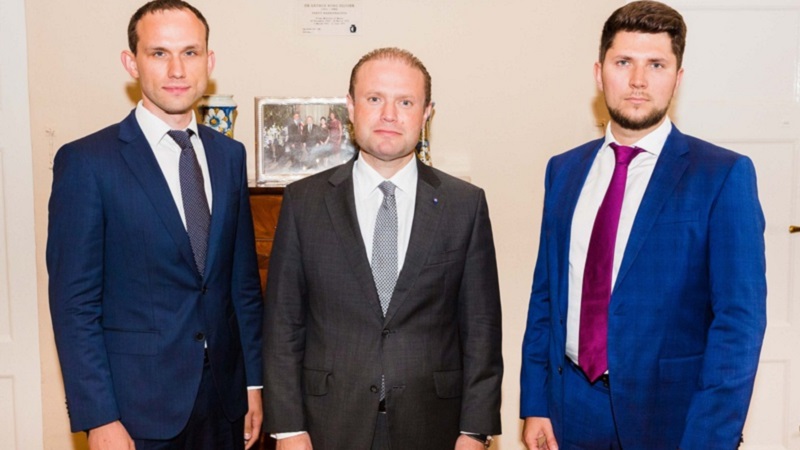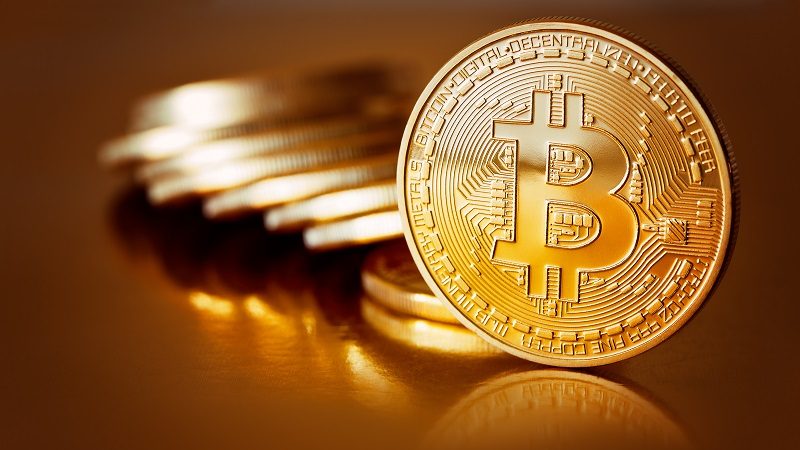Three to four billion pounds of criminal money in Europe is being laundered through cryptocurrencies, according to Europol.
BBC Panorama interviewed the agency’s director Rob Wainwright who said that regulators and industry leaders need to work together to tackle the problem.
Mr Wainwright told BBC Panorama that Europol, the European Union Agency for Law Enforcement Cooperation, estimated that about 3-4% of the €113 billion in illicit proceeds in Europe were laundered through cryptocurrencies.
In May 2017, Prime Minister Joseph Muscat announced that Cabinet had approved a national strategy to make Malta “the Bitcoin continent of Europe”. The strategy was pursued after the June election with Muscat holding meetings with a company that was at the centre of fraud allegations in the US.
A cryptocurrency is a digital currency operating independently of a Central Bank. Unlike traditional currencies, they are not printed by governments and traditional banks, nor controlled or regulated by them. Since the currency is not controlled by a central authority, the police cannot monitor transactions.
Europol told the BBC it was concerned about the rapid growth of cryptocurrencies. And Malta’s Prime Minister Joseph Muscat may be about to add to their worries.
The anonymous and unregulated nature of virtual currencies was attracting criminals, making it hard for police to track them as it was difficult to identify who was moving payments, according to the BBC.
Another problem Europol identified involved the method used to launder money. Proceeds from criminal activity are being converted into bitcoins, split into smaller amounts and given to people who are seemingly not associated with the criminals but who are acting as “money mules,” the BBC reported.
In Malta, the Prime Minister’s sudden interest in Bitcoin raised eyebrows as scandals related to allegations money-laundering engulfed top government officials following the Panama Papers scandal in which Minister Konrad Mizzi was the only one in an EU Member State to be mentioned.
The allegations then surrounded the Prime Minister’s Chief of Staff Keith Schembri who was also exposed in the Panama Papers, and the Prime Minister himself as a result of allegations involving his wife’s ownership of Egrant.
Soon after the election, Muscat met with the CEO of Exante Alexei Kirienko, to discuss the rise in cryptocurrencies and “the launch of Exante’s cryptocurrency trading”, according to the company’s web site.

Exante’s Executive Director, Anatoliy Knyazev and Exante’s CEO, Alexey Kirienko were guests of Prime Minister Joseph Muscat a few weeks after the general election. Photo: Exante website
The Shift News revealed that Kirienko was on the citizenship list published in December 2017, including those who bought citizenship through the cash for passports scheme.
Exante was at the centre of fraud allegations in a case by the United States Securities and Exchange Commission (SEC) in 2015. The case was described as involving “one of the largest financial cybercrime networks of all times”.
Dozens of traders from around the world, who seemed to be linked to a hub in Ukraine, allegedly traded illegally on insider information stolen by hackers from newswires, according to the charges. The allegations had also led to the temporary freezing of all the company’s accounts in Malta.
The Shift News also reported that Exante had signed a deal in Kazakhstan to develop the ex-Soviet nation’s untapped cryptocurrency market, a move that aligns with the government’s strategy on digital currencies.
The company’s top men have been treated like royalty in Malta in recent years. One of the first things the newly-appointed Parliamentary Secretary responsible for Financial Services, Digital Economy and Innovation, Silvio Schembri, did last July was to visit the company’s offices.
The firm’s relationship with the country’s top brass started long before then. President Marie Louise Coleiro Preca hosted an exclusive dinner at Verdala Palace for Exante on December 5, 2015, when the company was still being investigated by the US Securities and Exchange Commission (SEC).













